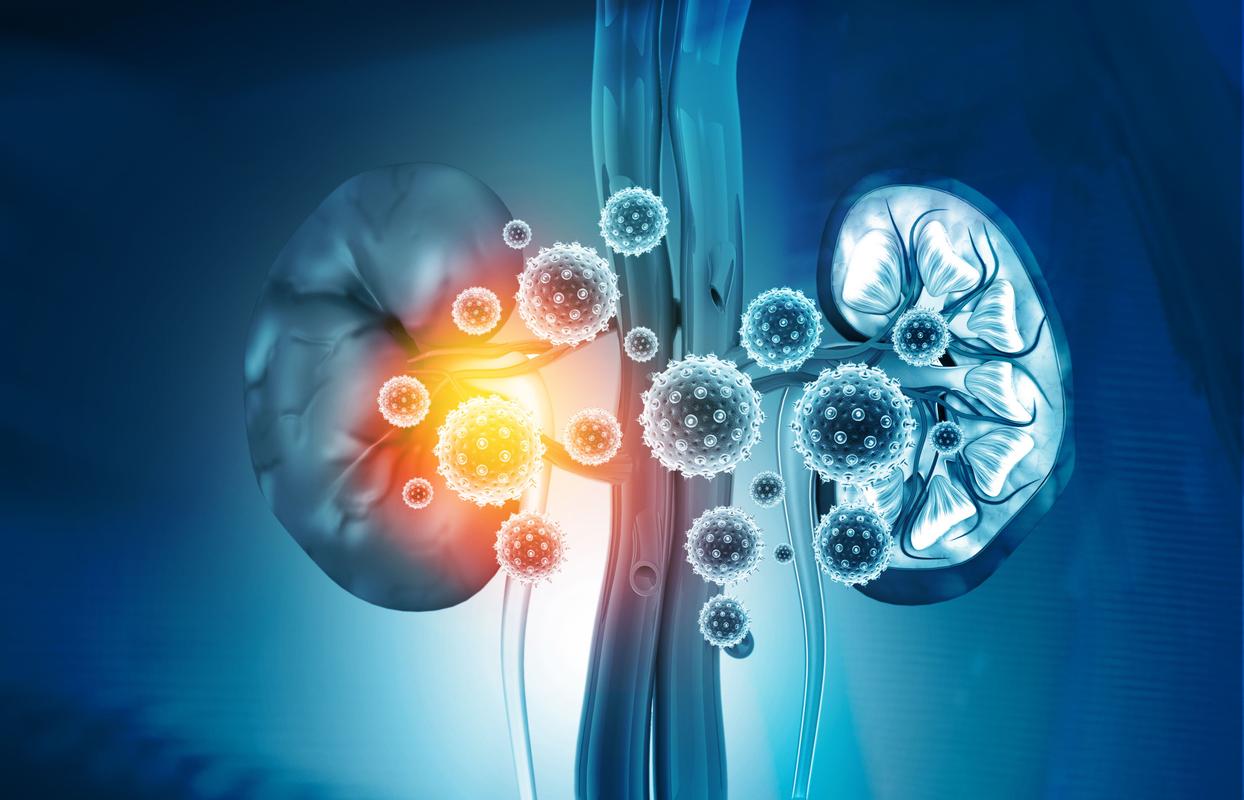An infection with the cytomegalovirus (CMV) is usually harmless in healthy adults, but can have serious consequences after a transplant. As a standard after a kidney transplant, people therefore receive preventive treatment with the antiviral drug valganciclovir. This works well against infections, but causes serious bone marrow suppression in quite a few patients, resulting in a reduced production of white blood cells. For that reason it is not routinely used for bone marrow and stem cell transplants.
600 transplant patients from 94 centres worldwide
UZ Leuven collaborated on a large prospective, randomised trial that examined whether letermovir could be a good alternative for the current standard treatment to prevent CMV infections after a kidney transplant. More than 600 patients spread over 94 transplant centres worldwide participated in the trial, 20 of which at UZ Leuven. They all had a high risk of a serious CMV infection because they were CMV-negative and were given a CMV-positive donor kidney.
As efficient but safer
Up to 200 days after their kidney transplant, patients were either given the classic preventive treatment with valganciclovir, or the new letermovir, and were monitored for a year. Serious CMV infections were as frequent in both groups (approximately one in 10 patients). But remarkably, the alternative approach with letermovir caused a lot less often a decrease in the number of white blood cells (in 26% of the patients in comparison to 64% in the valganciclovir group). The treatment was less frequently stopped early because of common side effects. Neither were there any viral mutations in the letermovir group, while these were found in the valganciclovir group in 1 in 10 isolated virus samples and were linked to resistance to antiviral drugs.
Our trial discovered that letermovir was just as efficient in preventing CMV infections, but also that it is safer and has a more favourable adverse effects profile.Prof. dr. Dirk Kuypers, head of the nephrology department at UZ Leuven
Prof. dr. Dirk Kuypers, head of the nephrology department and principal investigator of the trial at UZ Leuven: “The classic approach to avoid CMV infections after a kidney transplant are often accompanied with serious bone marrow suppresion, putting patients at higher risk of developing potentially fatal infections with fungi or parasites. Our trial discovered that letermovir is just as efficient in preventing CMV infections, but also that it is safer and has a more favourable adverse effects profile. The fact that the alternative treatment is not linked to mutations of the CMV virus is especially interesting and good news for for fighting any subsequent infections, after the preventive phase.”
